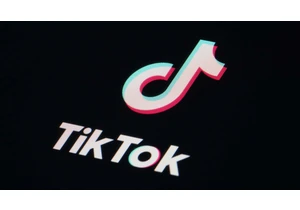Ho-ho-holy cow, we made it through another crazy year! It was a time of insurrections, the continuation of the pandemic, and the introduction of an entirely new COVID-19 variant as a parting gift. And the bad news? Another new year is right around the corner. While we can’t predict what 2022 will have in store, you can get your year off to a slightly better start by performing a digital detox on your smartphone by deleting apps that are no longer working for you. Everybody’s wants and needs are different, so it’s possible that you’ll decide to keep some of the apps I mention below. Even so, it’s a useful year-end exercise to step through all the apps on your phone and ponder whether each one deserves a spot there. Here are some types of apps you might conclude have more downside than benefits: Messaging apps that could be more private Let’s start with the easy ones. Messaging apps are among the most-used apps on any smartphone. But many of them don’t provide you as much privacy as they could. Skype, for example, is still one of the few major messaging apps that doesn’t offer end-to-end encryption by default. But even excellent apps, such as Apple’s Messages and Meta’s pretty-good WhatsApp, don’t offer total privacy. Though both apps end-to-end encrypt your messages, there is still a handful of data the companies have that is linked to you, as Apple’s own App Store privacy labels reveal.
Messaging apps privacy labels https://t.co/ePkdrrAkWE pic.twitter.com/LJFscvM7Wx — Nicholas Frota (@nonlinear) January 5, 2021
Thankfully, there’s Signal, which is the best and most secure messaging app on the planet. It has the elegance of Apple’s Messages with the functionality of WhatsApp, is cross-platform, and is vastly more secure and private than any other messaging app out there. Utility apps with features already built into the OS Utility apps are small, usually single-purpose, apps that add some basic functionality to your phone. Think flashlight apps and QR scanners. The problem is many of these free utilities may be pelting you with ads or even sharing your data with advertisers. But the good news is you don’t need these freebies. Flashlight and QR scanning capabilities are now built directly into the iPhone’s iOS and Google’s Android. So why keep the free apps on your phone any longer? Storage-hogging games you don’t use anymore Smartphone gaming is huge, and there are many wonderful game developers out there creating extraordinary experiences. However, one of the bad things about games is that some of them take up gigabytes of space, which reduces how much free storage you have for other apps and data, such as photos. There are too many storage-hogging games to list, so it’s best to just go through your installed games. If you never use them anymore, nuke them—you can always download them again anyway. Most “free” VPN apps VPN apps are something smartphone users are increasingly installing. They are an incredibly useful tool from a privacy standpoint as they prevent your cellular provider and ISP from seeing the sites you visit on your smartphone. Unfortunately, the app stores are awash in “free” VPN apps. Many are opaque about how they make money and what they do with your data. And that’s a problem, because a VPN company could see your internet traffic if it wanted to—and use your data to sell to advertisers, or anyone else. Thankfully, there are a ton of great paid VPN services out there. And a good VPN that’s transparent about its data collection and retention policies is worth the investment. Apps that turn you into an outrage monster It doesn’t matter how virtuous your cause is. If it makes you become an asshole online, see everything as black or white, or treat everyone who doesn’t share your cause as the enemy, you need to step back from social media apps like Twitter and Facebook. If you’ve ever joined an online outrage mob and ganged up on anyone in a fit of self-righteous ecstasy, you need to take a break from these apps. If you forget the person you are condemning is human and has feelings too—well, as the saying goes, “Tweet others as you would like to be tweeted.” And if you can’t do that, it’s time to delete the apps in a last desperate bid to get some of your humanity back. Apps that make you feel ugly There are two truths you don’t understand when you’re young: You’re beautiful as you are, and you’re also better looking than you think you are. Of course, these facts are hard to remember the longer you scroll through your Instagram and TikTok feeds, which can make you think you’re a hideous monstrosity since every influencer looks so “perfect.” But two hours of makeup and wardrobe, professional lighting, a few well-cast shadows, and some liberal use of filters and edits will make anyone unnaturally glamorous. No influencer wakes up, goes to school, and goes to bed looking like they do in their posts to the ‘Gram and ‘Tok. It’s all artifice, and if it makes you feel bad about yourself and gives you unrealistic expectations of what someone “should” look like, it’s time to get rid of the apps. Dating apps when you’re in a relationship You’re in a monogamous relationship? Great! But then why the heck do you still have dating apps like Hinge, Bumble, and Tinder on your phone? And does your partner know? How would they feel if they did? If your significant other is under the impression that you’re in a committed relationship, there’s no reason to still be swiping through dating apps checking out your other options. Some dating apps even make this explicitly clear. Hinge, for example, has literally trademarked the phrase, “The dating app designed to be deleted.” Keep the person who loves you, and delete the apps. Apps that you subscribe to but never use Many apps make their money via subscriptions, and there’s nothing wrong with that. Maintaining and adding features to apps cost developers money and time, and they should be financially rewarded for doing so. That being said, subscription-based apps that you never use are a waste of your money. For example, if you never watch Netflix or Disney Plus, why keep paying for them? If you don’t play any of the games on Apple Arcade or do the workouts in Apple Fitness+, why stay subscribed? The same is true for any other subscription-based health, productivity, or entertainment apps you don’t use. Go through your apps, and if you pay subscriptions for them but don’t use them, cancel the subscription first and then delete the app. You could always resubscribe at any time anyway if you find yourself really needing the service in the future. Apps that you spend way too much money in Apps can suck money from your bank account in another way: by making it way too easy to buy things. Don’t get me wrong, food delivery apps are fantastic, but they also make it tempting to buy an $18 Big Mac meal every night in a few taps, when you could otherwise walk down the street and pick one up for $6. Likewise, while apps from Amazon, Target, and Best Buy make shopping fast and convenient, it might be a bad sign if you’re losing track of just how much you buy in them. So what to do? Go through your bank statements and add up all the transactions from anything you buy via the apps on your phone. If they add up to a shocking amount, delete the apps to curb the urge to splurge every time you unlock your phone.
Login to add comment
Other posts in this group

Rumors of a Tumblr comeback have been bubbling for a couple of years—think a pair of Doc Martens here, a splash of pastel hair dye there. Now, Gen Z is embracing the platform as a refuge from an i

You can’t talk about the manosphere without mentioning Andrew Tate. The British-American influencer and former professional kickboxer built his platform by promoting misogynistic ideas—claiming wo

UFC is joining up with Facebook’s parent company


As the deadline to strike a deal over TikTok approaches this week, President Donald Trump has signaled that he is confident his administrat


A top employee of billionaire Elon Musk who is now working in the
